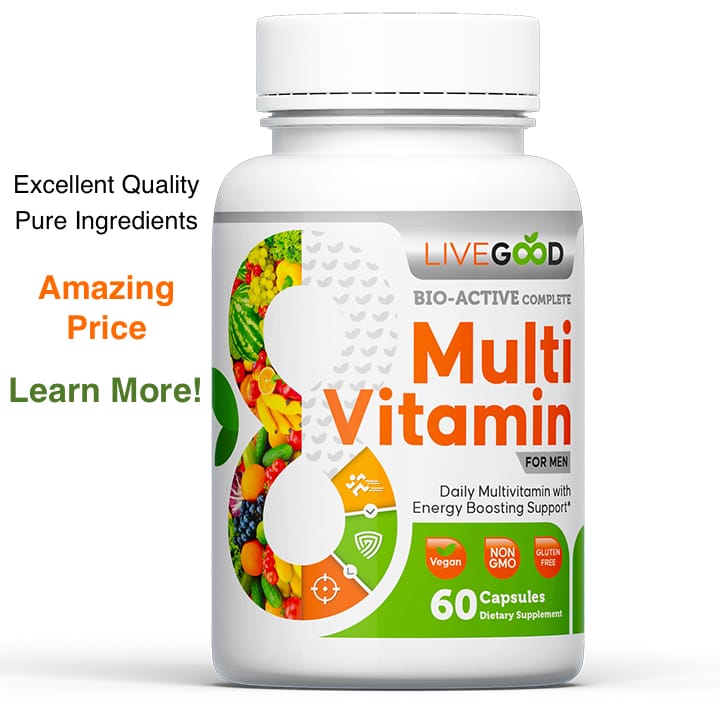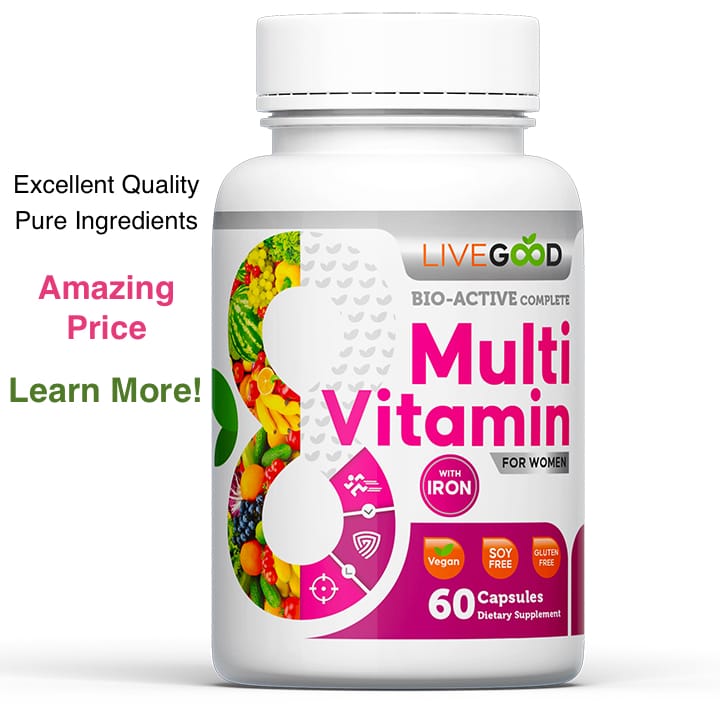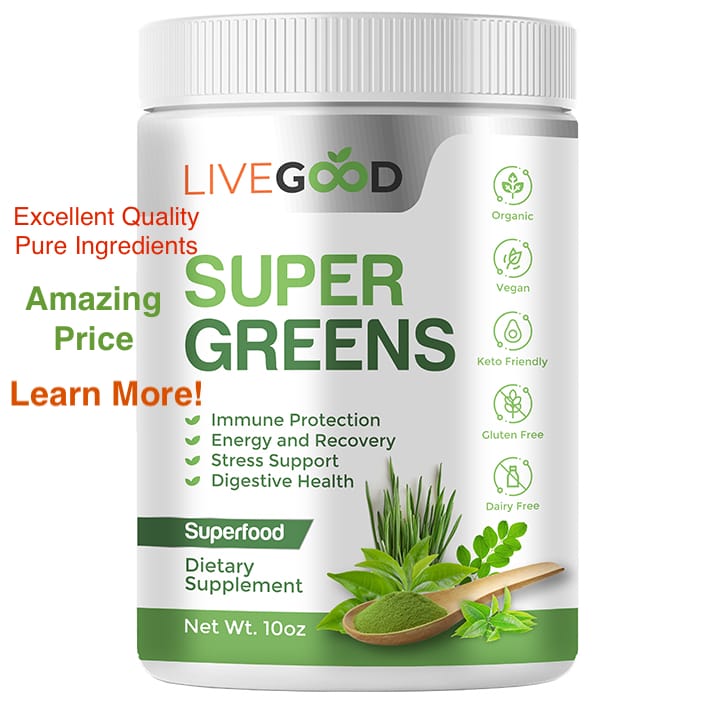Reducing ADHD Symptoms Naturally!
Want To Know If Nutrition Plays A Role in ADHD (ADD) Symptoms?
by TJ
There are those that say diet affecting ADHD (ADD) is controversial and inconclusive. Is it? I take a look at an article that discusses ADHD, diet, supplements, and data from studies.
I also made a video with my thoughts on this topic below if you would rather hear them then read them.
This article on AuthorityNutrition.com has some very good points that I'm happy to see. It is nice to see someone saying a lot of the same things that I have been saying for a long time. Those that I have learned from, have said the same things for even longer.
There’s no evidence that the behavioral disorder ADHD is caused by diet.
However, research suggests that for some people, dietary changes can improve symptoms.
In fact, a substantial amount of research has examined how nutrition affects ADHD.
I notice people get stuck on the cause or the cure but my focus is on the causes of the symptoms that make it hard to function. If you have ADHD and your can function very well without medication, then it really isn't a problem that you have it.
ADHD can be anything from symptoms as a result of brain injury, those that look like ADHD but are Fetal Alcohol Syndrome, thyroid issues, hypoglycemia issues, adrenal gland fatigue, blood sugar issues, Candida overgrowth, nutritional deficiencies, and other things not mentioned.
With some of these, dietary changes will improve symptoms.
There has been research going on for a long time. Some of the research is how to push more medication and make it look like diet and supplements wont help.
So its difficult to know what studies to believe.
Bottom Line: ADHD is a complicated behavioral disorder, and common treatments include therapy and medication. Dietary changes may also be useful.
Really, ADHD isn't that complicated. Doctors and researchers make it complicated. We are talking about your health that is traded on the stock market. Look at all the medical companies that are publicly traded. Is it really about making the most money or getting you healthy so you never have to visit a doctor again nor take medication?
If people have a poor diet, dietary changes are always useful. It may not eliminate the symptoms, or all of them, but it is always useful. Most people have a poor diet, even those that think they eat healthy. People aren't properly educated as to what is healthy...
The SAD (Standard American Diet) isn't healthy.
It is no surprise to me that the article always has to say its common to do medication. The reason is, its what gets pushed to parents. Ive heard from parents, I saw on investigated tv shows where parents say to the doctors, we don't want medication. The doctors say, its the only way and write a prescription. I've been around to many doctors with the God complex. They think they are God and don't you dare question them, tell them what to do, or act like you know more than they do.
Oh, and those are the types doing studies as well.
Now to the good points in the article.
Studies Show How Nutrition Helps ADHD Symptoms
Nutritional deficiencies can also affect behavior. One study concluded that taking a supplement of essential fatty acids, vitamins and minerals led to a significant reduction in antisocial behavior, compared to a placebo. (24)
Vitamin and mineral supplements can also reduce antisocial behavior in children, and poly-unsaturated fatty acids have been shown to decrease violence. (25, 26)
Since foods and supplements have been shown to influence behavior, it seems plausible that they could also affect ADHD symptoms, which are largely behavioral.
I hear often about children with behavior issues. Fix their nutrition!
Many studies have shown that children with ADHD often have unhealthy eating habits or nutrient deficiencies. (27, 28, 29, 30)
When parents tell me that their child has bad ADHD but eat healthy, I know that is not the truth. Parents believe the diet is a healthy one but they have to be re-educated what healthy is.
My friend Deborah Merlin had twin boys. One of them had ADHD and very bad behavioral problems. She had a blood test done and found out he was deficient in amino acids. He started taking amino acids and his problem went away.
In particular, the amino acids phenylalanine, tyrosine and tryptophan are used to make the neurotransmitters dopamine, serotonin and norepinephrine.
People with ADHD have been shown to have problems with these neurotransmitters, as well as low blood and urine levels of these amino acids. (31, 32)
Make sure to get a quality vitamin and mineral supplement. Most out there are no good!
However, lower levels of zinc, magnesium, calcium and phosphorous have repeatedly been reported in children with ADHD. (39, 40, 41)
......Nevertheless, a 2014 trial of a multivitamin and mineral supplement did find an effect. The adults taking the supplement showed a convincing improvement on ADHD rating scales after 8 weeks, compared to the placebo group. (49, 50)
Get Omega 3 fat! Extremely important and you will see why.
Children with ADHD generally have lower levels of omega-3 fatty acids than children who don't have ADHD (51, 52).
What's more, the lower their omega-3 levels, the more learning and behavioral problems the ADHD children seem to have (53).
Therefore, it's not surprising that many studies have found omega-3 supplements to cause modest improvements to ADHD symptoms (54, 55, 56, 57, 58).
In studies, omega-3 fatty acids appear to help improve task completion and inattention. Additionally, they decreased aggression, restlessness, impulsiveness and hyperactivity (59, 60, 61, 62, 63, 64, 65).
What to do
1. Diet
2. Eliminate the bad stuff (processed foods, chemical, food allergens)
3. Omega 3
4. Protein and amino acids
5. Vitamins and Minerals
6. Support for thyroid and adrenals
If you want to learn more about supplements, sign up for my free health and supplement course.
AuthorityNutrition.com Does Nutrition Play a Role in ADHD?
Image by Flickr.com user Michael Stern - Wall_Food_10006






